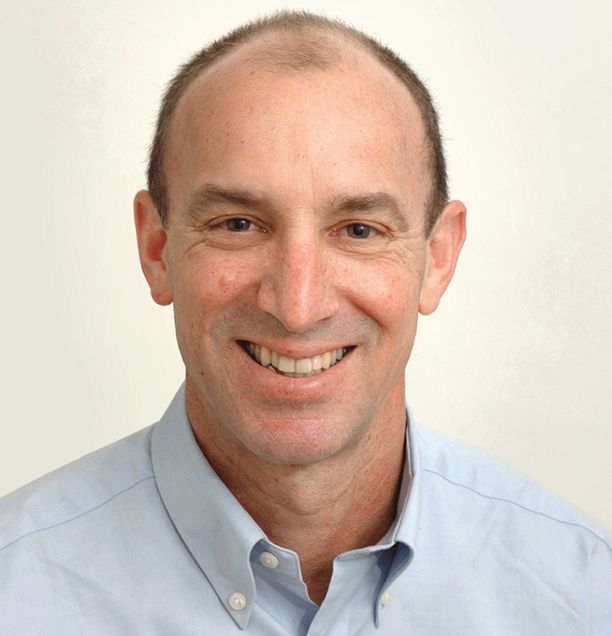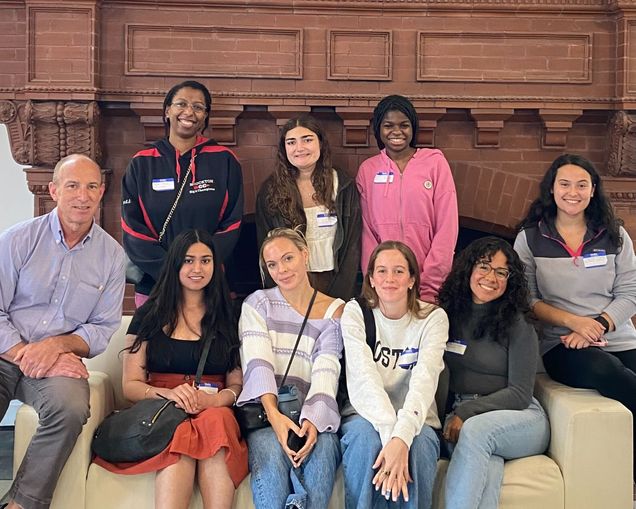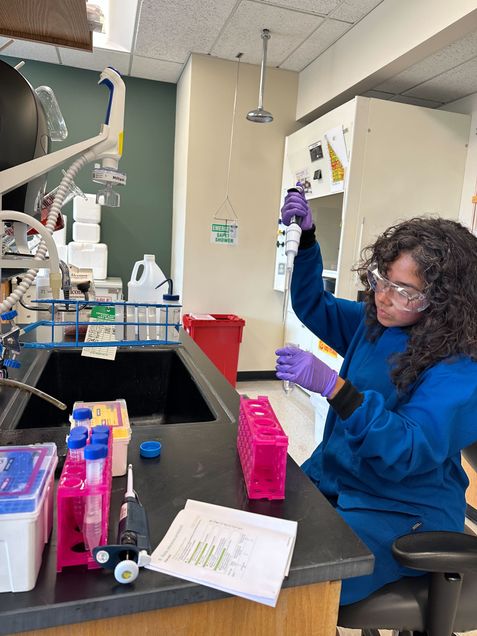GMS Faculty Spotlight: Andrew Henderson, PhD

Andrew Henderson, PhD, has spent the last 16 years at the Chobanian & Avedisian School of Medicine, during which time he has both performed groundbreaking research and been a part of developing two innovative PhD-training pathway programs in Graduate Medical Sciences (GMS).
Henderson is professor of medicine/infectious diseases and virology, immunology & microbiology . He also serves as the assistant dean of research for Graduate Medical Sciences.
Henderson completed his PhD training at the University of California, Riverside, before accepting a post-doctoral fellowship at Columbia University in New York City, where he embarked on what would eventually become a career in researching human immunodeficiency virus (HIV).
“I was really interested in questions of how genes get expressed in different cell types in the context of the immune response,” Henderson said. “Since HIV targeted the immune system, it became an important question to understand how it was expressed in the different immune cells.”
Following his fellowship at Columbia, Henderson took a position at Penn State, where he remained for 10 years. In 2007, he accepted an associate professorship at Boston University and came to the Medical Campus as an established, mid-career investigator.
Henderson’s lab focuses on several projects related to the cellular mechanisms that regulate HIV replication and transcription, drawing on his background in immunology and interest in understanding how the immune system develops.
“One of the nice things about doing research in an academic environment is that you can explore and shift and do things that sometimes will change the direction of your research interests,” Henderson said.
Establishing the Boston University PREP Program
Eager to combine his research with a role as an educator at GMS, Henderson worked with former Associate Provost and GMS Dean Linda Hyman, PhD, to establish a post-baccalaureate pathway program.

Now in its fifth year, the year-long Post-baccalaureate Research Education Program (BU PREP) is designed for recent bachelor’s degree recipients seeking entry into competitive PhD training programs. The program is supported by an R25 grant from the National Institute of General Medical Sciences (GM125511).
According to Henderson, BU PREP facilitates and inspires recent bachelor’s degree graduates to consider PhD training or other long-term careers in science. The program is intended for research-motivated students who are historically underrepresented in scientific fields, with the aim of creating more diversity in STEM.
“We’re closing that gap a little bit, but we need to do a better job in science and attracting underrepresented groups to the STEM fields,” Henderson said.
The program pairs participating students with a lab at the medical school, where they work throughout the year on a variety of research projects. Students also can participate in journal clubs, audit courses, need a verb here professional development panels and attend seminars from leaders across STEM fields.
“There are lots of opportunities where you can be a leader in the field, whether it’s being a professor at an academic institution, leading a group at a biotech company or directing policy and education,” Henderson said. “So, we try to expose the BU PREP students to that as well.”

The program also offers mentorship throughout the PhD application process, giving insight into recommendation letters, personal statements and career development. Participants work and network with students at other PREP programs throughout New England, with the support of the NIH-funded Providence/Boston Center for AIDS Research (CFAR), where Henderson serves as an associate director.
“Obviously the lab experiences are super positive and can really transform somebody’s perspective of science and future careers,” Henderson said. “However, I think the mentorship and the engagement with students is something that we do really well.”
Every student who has gone through BU PREP is still in science, whether in a PhD program, at a biotech firm, or in the process of graduate or medical school applications.
“I feel like we’ve supported people through this process,” Henderson said. “I would hope everybody comes out of BU PREP feeling like they’ve gained from this experience.”
Capacity Building and Partnership with the University of Liberia
Henderson’s mentorship roles extend beyond BU through his participation in the Boston University and University of Liberia Emerging and Epidemic Virus Research (BULEEVR) program, which is supported by the NIH Fogarty Internal Center (U2RTW011293)
A collaborative effort between BU, the University of Liberia, and several other stakeholders, BULEEVR partners to create a training program that supports Liberian scholars in their journey to pursue PhD training in biomedical sciences and public health.
Henderson leads the BULEEVR program alongside BU School of Public Health Chair and Professor of Global Health Patricia Hibberd, MD, PhD; Director of the BU Center for Emerging Infectious Diseases (CEID) and Associate Professor of Medicine Nahid Bhadelia, MD, MA; Refuge Place International President and CEO Mosoka Fallah, PhD, MPH, MA; and Vice President of University of Liberia College of Health Sciences Bernice Dahn, MD, MPH.
Now going into its sixth year, the BULEEVR program was founded in the wake of the 2014-16 Ebola outbreak in West Africa. The program began when Bhadelia and Fallah began to consider programs focused on research, clinical care, and sustainable STEM training in Liberia.
“There was a realization about the need for sustainable research and education programs as well as larger questions around equity, and the need for investment in places such as Western Africa, where emerging infectious diseases are having an impact every day,” Henderson said.
The program provides individual mentorship by building trainees’ foundational scientific knowledge, assisting with research papers and application processes and trying to guide them toward competitive PhD programs.
BULEEVR currently has six trainees. Four trainees are in PhD programs across the United States with two trainees in the Epidemiology PhD program at BU School of Public Health. One BULEEVR trainee also recently received his MS from the GMS program in Clinical Research.
Ultimately, according to Henderson, the program’s long-term goals are rooted in sustainable educational programs and research projects. The BULEEVR team actively engages with Liberian stakeholders with the goal that program trainees will eventually train the next generation of scientists in-country.
“I would hope that by the end of next five years, we’re training people in Liberia, doing collaborative research in Liberia and our trainees are getting PhDs from the University of Liberia,” Henderson said.
Whether in his lab, mentoring traditional PhD students or working with trainees in the BU PREP and BULEEVR programs, Henderson enjoys seeing the professional maturation process of new scientists who are excited about their work and grow alongside their projects. It is that process, according to Henderson, that makes graduate school such a valuable experience.
“I think sometimes we get kind of rigid in thinking about our careers and our progression and we forget to enjoy and embrace the process,” Henderson said. “Science can be really fun.”